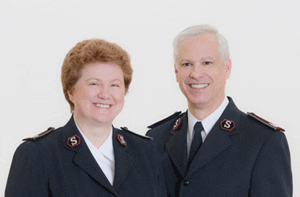Civility and civilization
by Robert Docter, Editor-In-Chief –
Civilization—you’ve come a long way, baby—but
you ain’t “there” yet.
civilization, n: an advanced state of human society, in which
a high level of culture, science, industry and government
has been reached.
Two blocks from my house a woman was jogging while pushing a stroller with two of her children in it. My daughters know the woman well. When she started moving past an alley a man with a gun jumped out and took all her jewelry.
In Los Angeles, a 12-year-old boy rolled across a street on his skateboard, was struck by a car and knocked unconscious in the street. The driver leaped out, looked at him, jumped back in his car and sped away.
In 2005, 35.1 million Americans lived in circumstances with low or very low food security. We waste about 50 billion pounds of food each year.
Approximately 8 percent of America’s families—37 million people—live in poverty.
More than 10.5 million children under age 5 died last year from disease, malnutrition, neglect and other crimes.
Building a civilization is a process. It is a movement toward becoming more civilized. We have, in this nation, many of the characteristics of a civilized society.
Social organization
We have a high order of social organization, institutions that protect us, that attempt to refine us and educate us. We have an unwritten set of social norms based on the values of the common culture. The home is the primary social institution assigned responsibility for instruction in these basic values. Because many of these values have their roots in the Judaic/Christian ethic, the church assumes responsibility for this instruction as well.
We have a commitment to science that seeks to find ways to explore ideas, places, the earth itself and its place in the universe, and the nature of natural order and law.
We have strong endorsement of the arts and humanities. On the whole, we are literate and understand the contributions of these disciplines to our lives.
We are personally industrious and hardworking as a people. We are also highly judgmental, critical to a fault, and very often simply downright lazy.
None of this means we are civil with one another, that we are civilized in our interpersonal affairs, or that we are successful civilization builders.
We tend to raise our children in much the same way we were raised. This means that too many of us replicate the same mistakes, build the same negative behavior patterns, create the same fears and dreams, model infidelity with our spouse, introduce impolite speech, create rigid roles, reduce expectation, and successfully create children with negative self-esteem.
Our education system has deteriorated to a place that teaches “subjects” instead of a place where living goes on and people become civilized—where it is more important to measure what is learned than it is to learn itself—where teachers stand and talk and children sit at desks and listen—where children are uninvolved in deciding what or how or when to learn. If we are going to live in a free society, people need to know the meaning of freedom.
I think it was Victor Frankl who once suggested that we should have a Statue of Liberty on one coast and a Statue of Responsibility on the other coast.
One coast is taken care of—who will build one for us on Alcatraz?
Frankly, I worry a little about some churches—some BIG churches. Their sense of certainty about the nature of God seems to fly in the face of biblical teaching and to eliminate faith as the vehicle for coping with our doubt. Our churches often seem more anxious to root out sin than to teach altruism and Christian love.
System of laws
We have a system of laws based on the Constitution that identifies the limits of power assumed by the state and grants certain specific “rights” for all the people. The Constitution assumes that responsible people will conduct their lives in a “civilized” manner and will use their individual liberty recognizing the rights of others.
An elected legislature specifies certain limits to our freedom. When individuals violate those laws, a judicial system determines the guilt or innocence of the individual, and, if appropriate, metes out punishment. A high court judges the appropriateness of these “limits” against the rights granted by the Constitution.
We have a system of government based on a representative democracy in which both the executive and the representatives are chosen by the people. The legislature makes the laws and the executive administers the law.
Too often the motives of the legislator writing the laws are more for personal or political gain rather than for the common good. Too often, the process fails because of private negotiations with other legislators having very little to do with the worth of the legislation. Over time, the results are ineffective in achieving legislative goals of representing people and sacrificed to goals of getting re-elected.
Being civil
It seems to me, the culture needs to establish goals that result in people being “civil” to one another. Civility seems to be a lost art. The state can’t legislate such matters as compassion, altruism, kindness, civility, common courtesy, social norms of polite social intercourse, valuing equality with the same fervor we value freedom. To achieve this, we must understand the multicultural nature of this society. We must provide opportunities for people to identify what they value and why. They must also be questioned about how that value fits into life in a civilized social order. We must encourage media to portray civility in a manner that can still attract viewers through the power of its drama.
Questions
Am I just whistling in the wind on this subject? Is improvement even possible?
Do you know what your values are?











